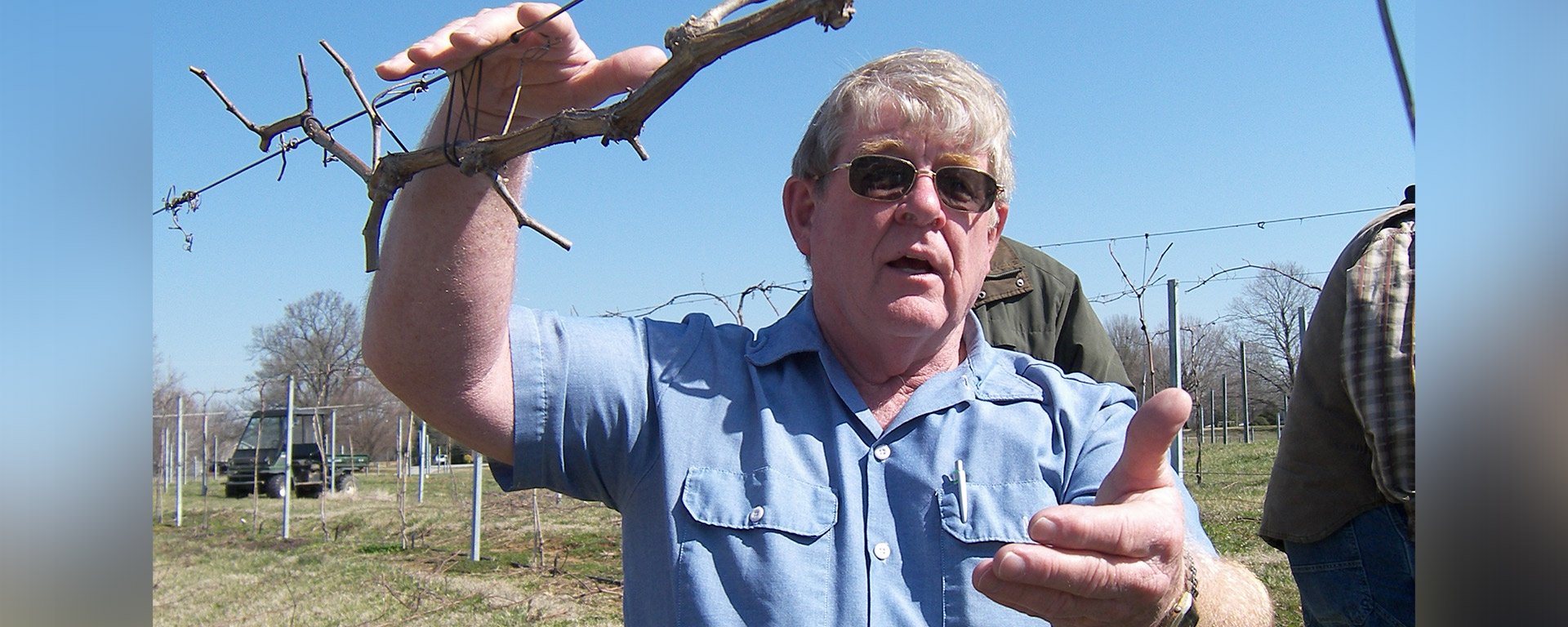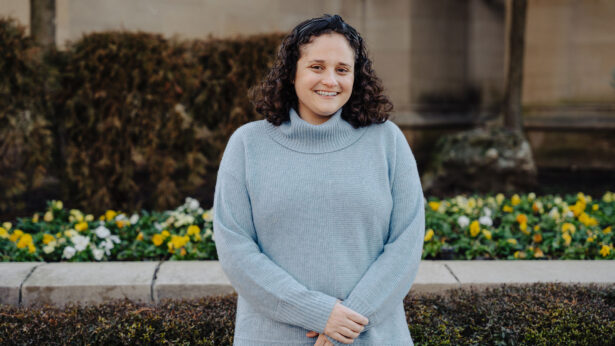From sitting at a kitchen table discussing rootstocks to trekking through an orchard to monitor pesticide efficacy, David Lockwood has toiled alongside Tennessee fruit growers for nearly 50 years.
It’s work he was, quite literally, born to do.
UT Institute of Agriculture’s fruit and nut crops extension specialist, Lockwood was raised in upstate New York on a family farm that grew apples, tart cherries, pears and high-sugar-content plums used for prunes. Most of the fruit was sold to processing companies; the plums went to Gerber Products for baby food.
“My dad was one of the best fruit growers I’ve ever known,” Lockwood says, adding that his father believed a successful farmer had to know his trees. “He used to say the best thing a person could see in their orchard was their own shadow.”
Lockwood joined the faculty of UTIA’s Plant and Soil Science Department in 1973 after earning his bachelor’s degree in horticulture and his master’s degree and doctorate in plant sciences from the University of Georgia.
“During my early years at UT, I got to know and work with many of the legends in fruit production from various southeastern universities,” he says.
Just like Lockwood’s dad, those experts stressed the importance of learning about the crops—and the farmers.
So that’s been Lockwood’s mission while advising Tennessee’s 400-plus hobby and commercial fruit growers, who produce an ever growing list of crops, including apples, peaches, grapes, strawberries, blueberries, blackberries, elderberries, pawpaws and persimmons.
Learning From Each Other
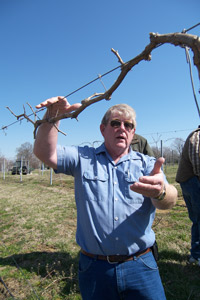
Lockwood first got to know Bill and Georgia Kilpatrick and their sons, Kent and Kevin, in the mid-1970s when Bill Kilpatrick, a Sevierville pharmacist, decided to plant some semi-dwarf apple trees on the family’s beef and tobacco hobby farm.
When the harvest exceeded what the family could use themselves, they began selling apples. Soon the Kilpatricks were making cider and expanding into other ventures.
Today, Apple Barn Cider Mill and General Store in Sevierville is a popular agritourism operation. The Kilpatricks tend 4,000 apple trees on 26 acres and also have a restaurant, farmhouse grill, cider room, winery, creamery, candy factory, general store and Christmas and candle shop.
To get the enterprise going, Lockwood accompanied Bill Kilpatrick on orchard tours and “spent a good bit of time at the kitchen table, talking over things” like tree varieties, rootstocks and planting.
As he’s done with other Tennessee fruit farmers, Lockwood nurtured a relationship—a friendship—with the Kilpatricks that’s helped them learn from each other over the years.
A few years back, Lockwood helped the Kilpatricks transition to a higher-density modern orchard by replacing their semi-dwarf trees with carefully pruned full dwarf trees supported by trellises.
Meanwhile, the Kilpatricks have helped UTIA with research projects, including the current field test of a more economical and environmentally sound pesticide spraying system.
Kent Kilpatrick, who has now taken over much of the orchard work for his 87-year-old dad, has known Lockwood since he was a child.
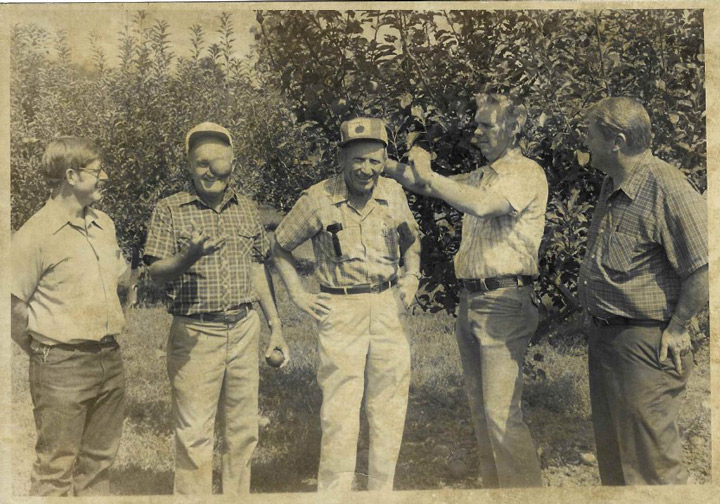
“Dr. Lockwood was the mastermind behind the orchard that was planted in 1976,” he says. “The Apple Barn wouldn’t be near to what it is today without him. There’s a relationship there beyond growing apples.”
In Bledsoe County, Lockwood has worked with several generations of the family that runs Wooden’s Apple House, which now includes an orchard, a farm market, a restaurant, a bakery and a gift shop.
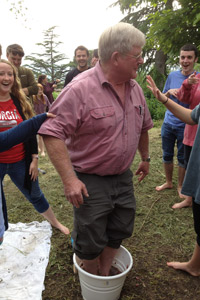
The orchard sits on land that’s been tended by the family for nearly 70 years— by Oren Wooden’s grandfather, his father, Oren himself, and now his children and their families.
After Oren Wooden died in 2013, his daughters and their husbands, Sandy and Mark Burnett and Carole and Labron ”Chubby” Smith, took over. The farm includes about 100 acres of apple trees and 20 acres of peach trees. In good years, the orchards produce 4 million to 5 million apples and 300,000 peaches.
Lockwood said the family has always wanted to stay on the cutting edge of fruit farming.
During one of his first visits to the orchard decades ago, Lockwood hopped in a truck with Oren Wooden to tour the farm and see Wooden’s highly successful, innovative efforts to control pests.
Another time, when Lockwood shared information about a new pruning system that required cutting limbs from the east and west sides of the trees to increase sunlight penetration, Wooden offered to test it in his orchard.
“They were always wanting to know about the new techniques that look promising. They’ve been quite progressive,” Lockwood says, adding, “And they are probably the nicest people in the world.”
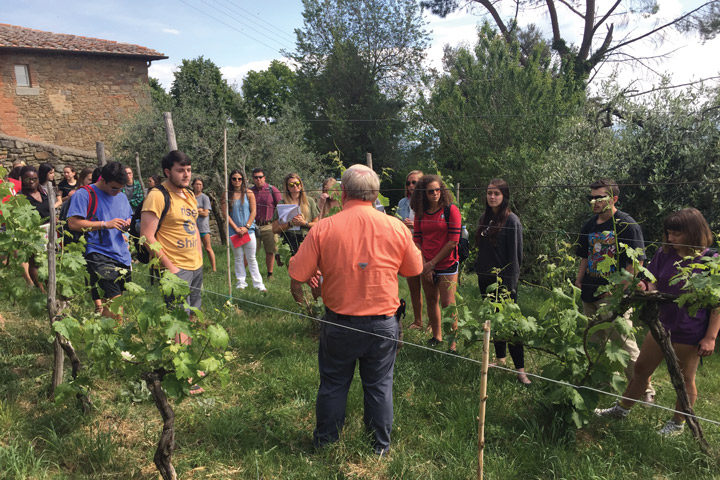
Mark Burnett remembers the bond his father-in-law forged with Lockwood, and he says Lockwood has been there whenever they’ve had a question or a problem.
“Ninety-nine percent of the time he’d know the solution. If he didn’t, he’d find out for us,” Burnett says. “He’s a good friend.”
Fruits of His Labor
Lockwood officially retired on June 30, 2022. He returned on a part-time basis the next day.
He’s been honored with the Tennessee Association of Agricultural Agents and Specialists Achievement Award, the Cavender Award for the best Extension publication, the Tennessee Fruit and Vegetable Association Outstanding Service Award, and the UT Institute of Agriculture’s Webster Pendergrass Distinguished Service Award for his contributions to Master Gardeners and small-fruit and nut-tree and tree-fruit industries. In March, he received Gamma Sigma Delta’s Distinguished Service to Agriculture Award.
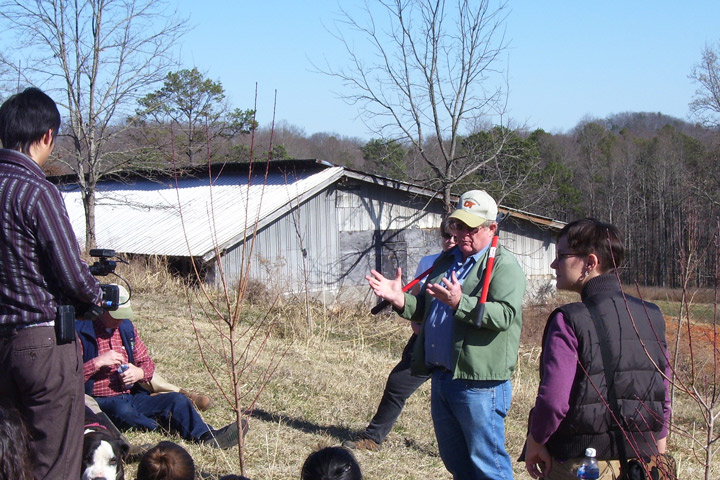
In nominating him for this latest award, Bill Klingeman, the assistant department head of plant sciences, described
Lockwood’s half-century of work with Master Gardener Volunteers, as well as small-fruit, treefruit and nut-tree producers across the Southeast.
“Without a doubt, David has established himself as the go-to expert for these commodities across Tennessee,” he wrote, adding that Lockwood “exemplifies the Volunteer spirit, usually working behind the scenes to contribute to the success and quiet promotion of others above himself.”

When retirement time allows, Lockwood enjoys “messing around” in the yard of his Knoxville home. “But, to tell you the truth,” he says, “there’s not a whole lot of time when I’m not doing something fruit-crop related.”
While he doesn’t grow any fruit or nut trees of his own, Lockwood still considers the orchards across Tennessee his adopted farms. Working with those orchards and their owners has made for a fruitful career.
“And I’ve enjoyed every bit of it,” he says.
